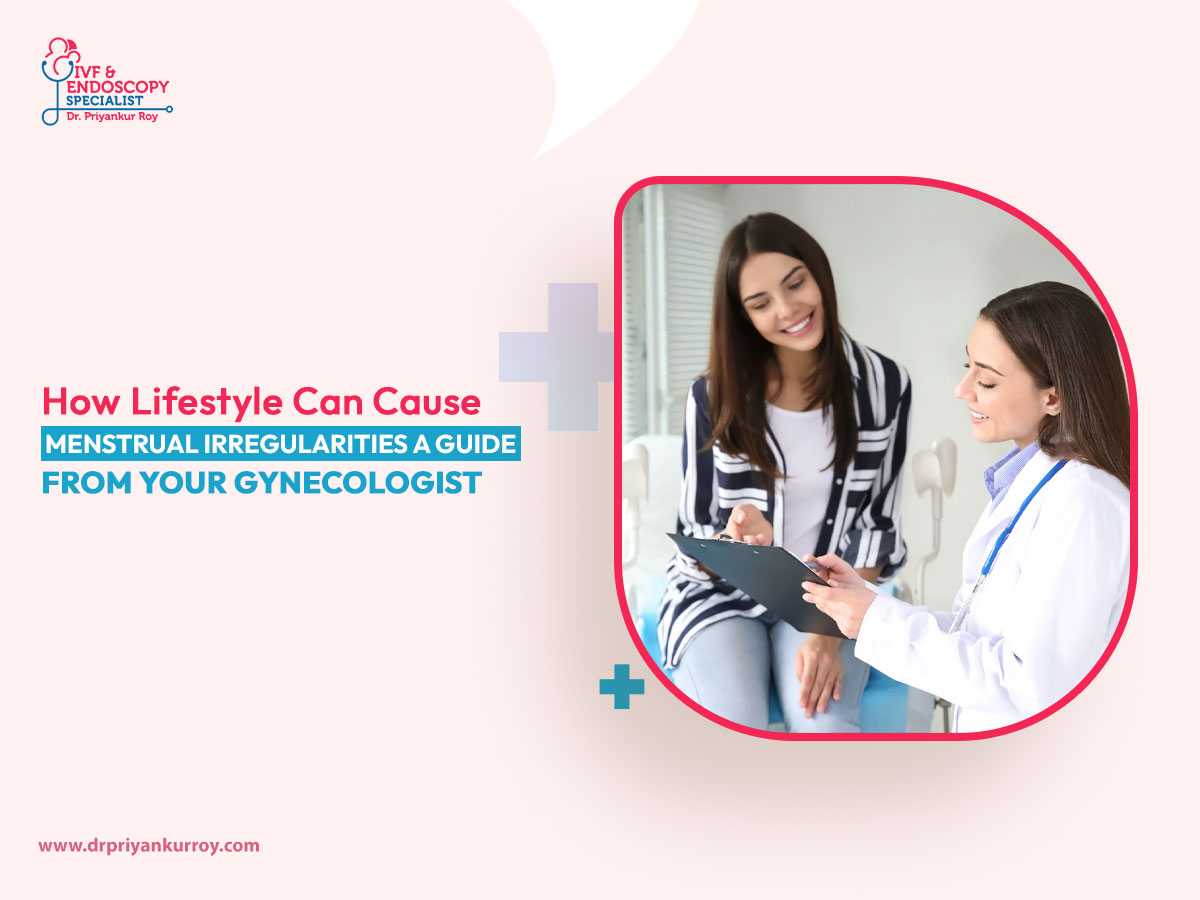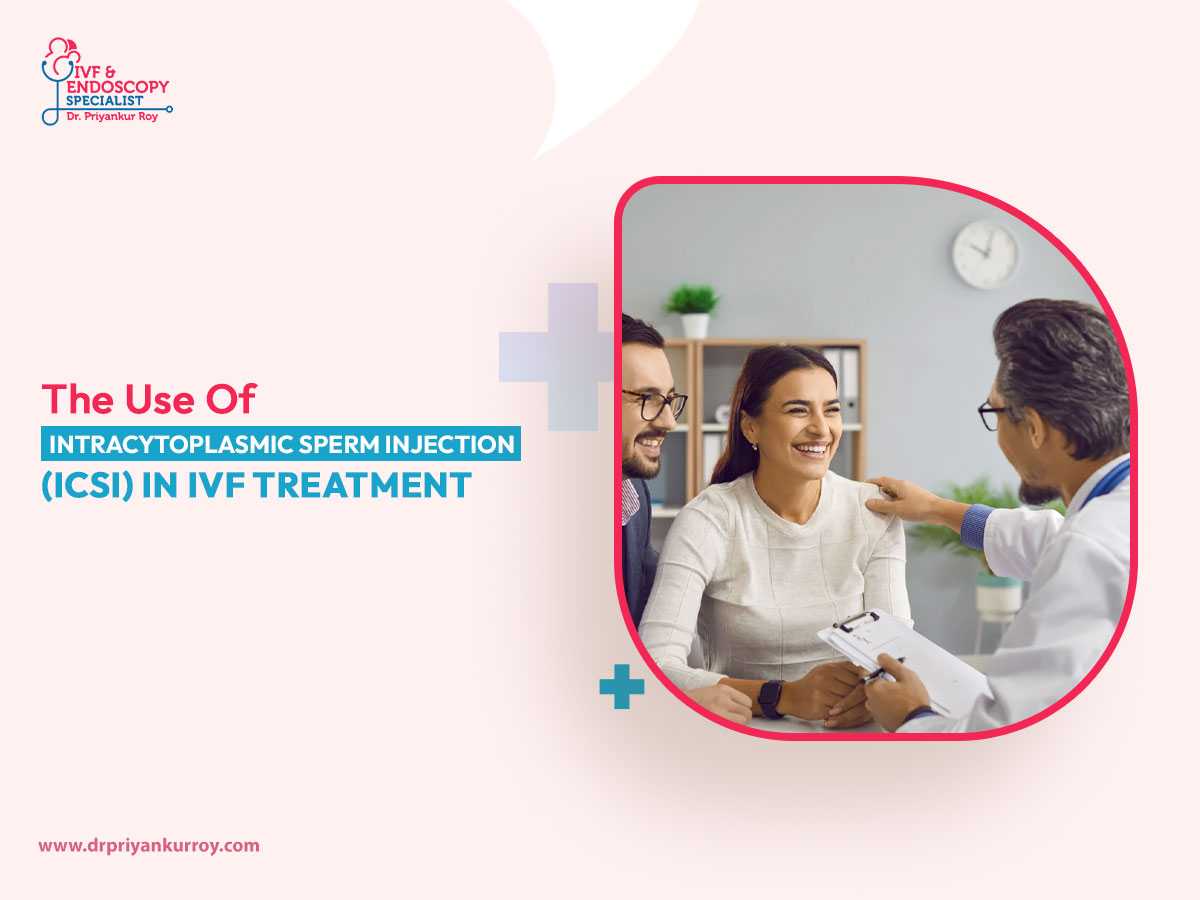Millions of people across the globe are now facing fertility issues due to certain health conditions such as ovulation disorders, sperm transportation issues, fallopian tube blockage, or uterine abnormalities. However, advanced assisted reproductive technology (ART) techniques can help you attain a healthy pregnancy and enjoy the happiness of being a parent.Connect with Dr. Priyankur Roy, a seasoned IVF specialist in Siliguri, for personalized and effective infertility treatment
As compared to other infertility treatments, IVF or in-vitro fertilization is one of the most successful techniques that can help you overcome both female and male infertility factors. IVF is a minimally invasive and less painful method that can be tolerated by most patients. Depending upon your health condition, age, and mental well-being, the doctor can also recommend more than one IVF cycle if a failed attempt is experienced on the first one. This advantage of IVF increases the success rate of the treatment by helping you attain a successful pregnancy.
What Is In-Vitro Fertilization?
In-vitro fertilization or IVF is a series of complex procedures that is mainly recommended to those couples who have been trying to get pregnant for more than a year. This infertility treatment involves fertilizing the sperm with a mature egg in a laboratory setting. In this process, more than one fertilized egg can also be transferred in the uterus to increase the success rates.
In most cases, 2-3 weeks are required to complete the entire IVF cycle. If additional treatment procedures are included then this process may take you longer. You can either use your own eggs and sperm for an IVF cycle or can also use donor eggs and sperm to have a healthy baby.
When An IVF Cycle Is Recommended?
IVF is recommended to a couple suffering from infertility issues and it can also be done to prevent passing down a genetic issue to your child. If a couple are carriers of genetic disorders then pre-implantation genetic testing is included in the IVF procedure to reduce the risk of any birth defects or chromosomal abnormalities. Additionally, before recommending an IVF cycle, the doctor will first analyse your individual factors, age, and medical history.
Explore The Common Medical Conditions When An IVF Cycle Can Be Performed.
- Unexplained infertility
- Recurrent pregnancy loss
- Advanced maternal age
- PCOS
- Abnormal sperm morphology
- Tubal factor infertility
- Endometriosis
5 Stages of An IVF Cycle
An IVF cycle comprises numerous steps which involve the administration of medications and surgical procedures. Starting from the stimulation of the ovaries to the transfer of the mature and defect-free embryos in the uterus, each step of an IVF cycle may take several days to complete. To make all of the IVF steps successful and accurate, it is essential to contact the best infertility specialist in Siliguri who has in-depth experience in handling these conditions.
Step 1- Ovarian Stimulation
The first stage of an IVF cycle is the stimulation phase where your ovaries are stimulated to encourage the ovaries to produce multiple eggs. Naturally, your ovaries produce one single egg on each menstrual cycle but with ovarian stimulation, multiple eggs will be produced to increase the chances of a successful fertilization. Certain stimulation medications or injections are prescribed by the doctor during this phase where the frequency, type, and shots may vary based on your health factors, age, ovarian response, and levels of anti-mullerian hormones.
These medications commonly consist of certain hormones such as luteinizing hormone (LH) and follicle-stimulating hormone (FSH). This stage is mostly performed 10 days before the collection of the eggs.
- Monitoring: Proper monitoring is also done during this stage to check the response of your ovaries towards the stimulation injections. This can be done through frequent blood tests to examine hormone levels and ultrasound to look into your ovaries and uterus. In this process, the number of ovarian follicles and their size will also be monitored which is the main factor that indicates the maturation of an egg.
- Trigger Shot: If the doctor thinks that the eggs have reached the maturation stage then a trigger shot is administered almost around 36 hours before the egg retrieval. This will help in finalizing the egg maturation and successful retrieval of the matured eggs.
Step 2- Egg Retrieval
The egg retrieval stage is mostly done after 36 hours of the trigger shot or hormone injection. This stage can be uncomfortable for some women since a needle will be inserted via the vagina to collect the eggs. This ultrasound-guided procedure uses a thin needle to retrieve the eggs from the ovaries. The needle used in this stage is also connected to a suction device so that the eggs can be collected seamlessly from the follicles. It is a highly effective and precise method that doesn’t harm or cause structural damage to the eggs.
In most cases, multiple eggs are collected during this stage so that the best eggs can be selected for fertilization and transfer. The other healthy eggs can also be frozen, which can then be used in further IVF cycles. Herein, after collection of the eggs, it is placed in a dish with a special solution and then it is stored in an incubator with a controlled environment to complete the other IVF stages. The doctor can prescribe you certain medications or sedation to reduce the side effects associated with the egg retrieval procedure, which include mild discomfort, bloating, and pain.
Step 3- Sperm Retrieval
If you’re using fresh sperm from your partner, then he will be recommended to collect the semen sample in a sterilized container on the day of the egg retrieval. In some cases of male factor infertility, donor sperm can also be used for fertilization which is frozen ahead of the egg retrieval. Usually, a semen sample is collected via masturbation. Skilled IVF specialists then isolate healthy sperm from the sample, ensuring successful fertilization The doctor may also include some additional procedures in this stage for that couple who have low sperm count or ejaculation issues.
Some of the most effective sperm retrieval procedures that the doctor may recommend are Percutaneous Epididymal Sperm Aspiration (PESA), Testicular sperm aspiration (TESA), Testicular sperm extraction (TESE), and Microepididymal Sperm Aspiration (MESA). In these procedures, a surgical procedure is performed to insert a needle and collect the sperm directly from the testicles. These aspiration techniques can contribute to the successful collection of matured sperm for further fertilization and successful implantation. After retrieval of the healthy sperm, some of them can also be cryopreserved so that they can be used for the next IVF cycles if the current one doesn’t work.
Step 4- Fertilization
After a few hours of egg retrieval, the doctor will try to fertilize the mature egg with a healthy sperm. In this stage, the selected sperm is injected directly into the mature eggs. You must remember that immature eggs cannot be fertilized with sperm and in such situations, nutrients are provided to the eggs to complete the maturation process. In most cases, the immature eggs cannot complete the maturation procedure.
To successfully perform this fertilization process, the doctor can either follow the conventional insemination method or intracytoplasmic sperm injection (ICSI) method. In the conventional process, mature eggs and sperm are mixed and then kept in an incubator with a proper environment. On the other hand, the ICSI method involves injecting a single sperm inside the egg. The ICSI procedure is mainly recommended if the couple have experienced failed IVF attempts or suffer from sperm quantity and quality issues.
In some cases, certain additional methods are also included during the fertilization stage to enhance the success rates of the IVF cycle. Some such methods include-
1. Blastocyst Culture- This laboratory technique helps the doctor monitor the fertilized eggs for more than 5 days until they reach the blastocyst stage. Blastocyst culture is one of the most effective methods because embryos that have reached the blastocyst stage have higher developmental capacity which increases the chance of successful pregnancy. The risk of multiple pregnancies can also be reduced with this method.
2. Assisted Hatching- Assisted hatching is done after 5-6 days of fertilization to assist the embryo to hatch successfully. Women with advanced maternal age often have a thick zona pellucida which makes it difficult for the embryo to hatch. In such cases, this method becomes highly effective while increasing the chances of successful implantation of the embryo in the uterine lining.
3. Pre-Implantation Genetic Testing- This test is conducted after the fertilization stage, where a small sample will be removed from the embryo to check for any genetic abnormalities. This helps in transferring genetically perfect embryos inside the uterus.
Step 5- Transfer of the Eggs
After 2-6 days of egg retrieval, one or more healthy embryos will be transferred into the uterus for implantation. The doctor may give you a mild sedative to manage the discomfort and pain associated with this procedure. In this stage, a flexible and long tube is inserted through the vagina so that the injection containing the embryo can be injected inside the uterus.
If this transfer is successful then the healthy embryos will attach to the uterine lining within 10 days from the egg retrieval. The doctor will recommend you do a blood test after 12 days of the procedure to check whether you’re pregnant or not. If you’re pregnant then you can consider booking a consultation with an obstetrician to get the best prenatal care.
Side Effects And Risks Associated With IVF
IVF is generally a safe procedure but just like any other technique, it is also associated with certain short and long-term risks or side-effects.
Side Effects:
- Infection or bleeding associated with egg retrieval procedure
- Ovarian hyperstimulation syndrome (OHSS)
- Constipation
- Breast tenderness
- Mild bloating
- Abdominal cramping
Risks:
- Ectopic pregnancy
- Stress
- Premature delivery
- Multiple pregnancies
- Birth defects
- Miscarriage
Before proceeding with the stages of an IVF cycle, IVF doctors may recommend diagnostic tests to assess your health. These tests are crucial for understanding your overall well-being and are often conducted by specialists in Siliguri. Some such tests conducted before an IVF cycle are infectious disease screening, ovarian reserve testing, uterine exam, and semen analysis. Ensure to address all your queries regarding the IVF procedure with your doctor, ensuring a clear understanding before starting the cycle. Ready to take the next step? Book your IVF treatment in Siliguri with Dr. Priyankur Roy today.
FAQ: Exploring the Five Stages of IVF
1. Is the IVF procedure painful?
No, you won’t feel severe pain during an IVF cycle. However, some women may experience mild discomfort or a stinging sensation during the egg retrieval and transfer stage. You must contact the IVF doctor immediately if you’re experiencing severe pain or cramping during or after the procedure.
2. Can we undergo multiple IVF cycles?
Yes, it is completely safe to undergo more than one IVF cycle. However, it is always recommended to patients that they shouldn’t undergo more than 3-4 cycles. In such cases, the IVF doctors in Siliguri may perform alternative procedures to help you attain a successful pregnancy.
3. In which cases, IVF have high success rates?
The success rate of an IVF cycle is higher if the woman undergoing the procedure is below the age of 35. This is because advanced maternal age can lead to genetic defects in the eggs with thick zona pellucida which makes it difficult for the embryo to hatch and implant successfully in the lining of the uterus.
4. Which food should I eat during the IVF cycle?
IVF doctors always recommend that patients undergoing an IVF cycle indulge in a nutritious and balanced diet with whole foods. Some of the best food options include whole grains, fresh fruits, healthy oils, nuts, eggs, fish, and seeds. It is always a better option to avoid food with high sugar, fatty acids, and Trans fat.
5. Can I travel after embryo transfer?
Definitely, it is completely possible for you to travel after the embryo transfer. However, it is always advised to avoid long-distance journeys immediately after the transfer. If travelling is urgent for you then you can consult an IVF doctor first to get the best advice.

Dr. Priyankur Roy
MBBS, MS, PGDMLS, PGDHHM, FIAOG
Dr. Priyankur Roy is a distinguished expert in Infertility Treatment and Gynae-Endoscopy. With advanced qualifications from Germany and the UK, he excels in providing high-quality medical care.
This blog is clinically verified by Dr. Priyankur Roy to ensure accuracy and reliability.
Comments (0)






